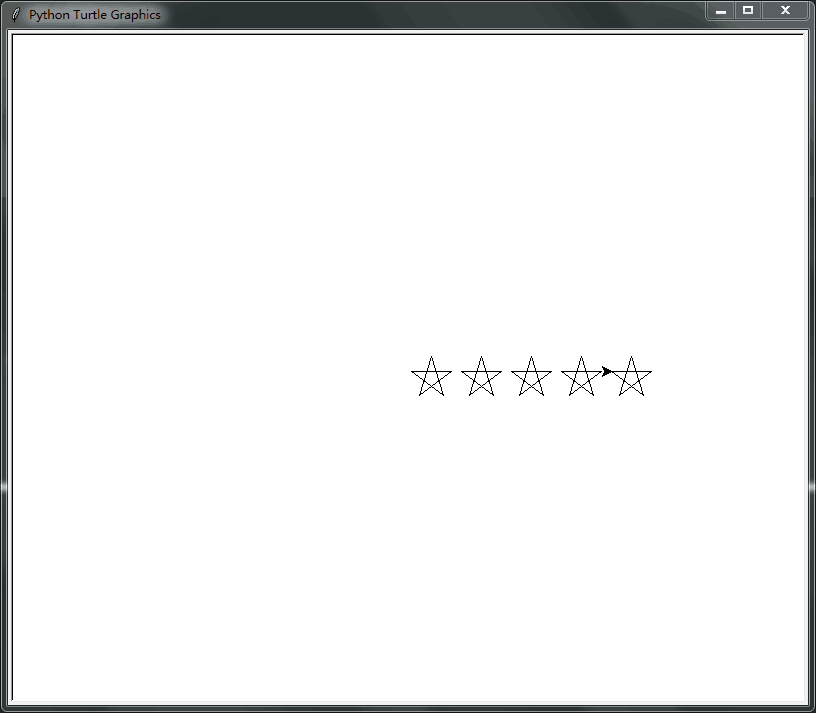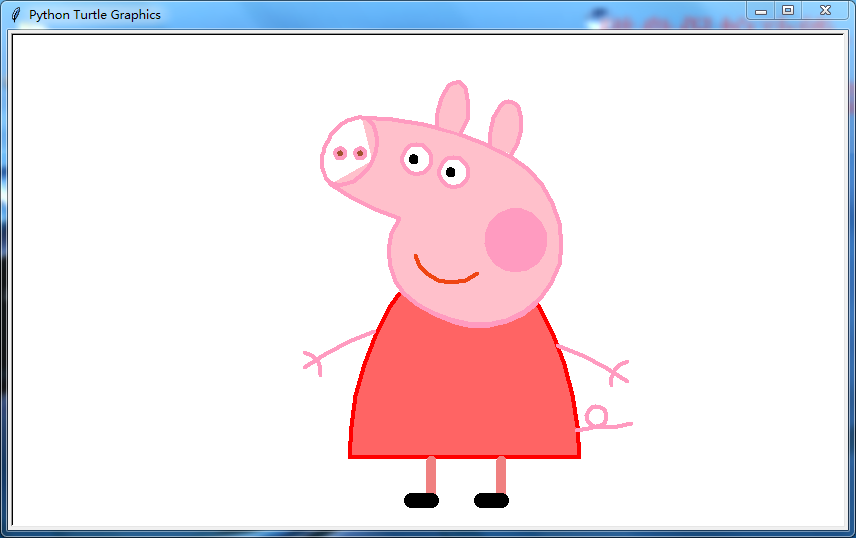一、课堂练习
描述
使用input输入若干个数,输出个数以及其中最大的数
1.普通方法实现
def max(*a): m=a[0] b=0 for x in a: if x>m: m=x b+=1 print(b) return m a=input().split() lst=[] for i in a: lst.append(int(i)) print(max(*lst))
2.用列表推导式实现
def max(*a): m=a[0] b=0 for x in a: if x>m: m=x b+=1 print(b) return m a=input().split() lst=[int(i) for i in a] print(max(*lst))
二、列表推导式
列表推导式(又称列表解析式)提供了一种简明扼要的方法来创建列表。
它的结构是在一个中括号里包含一个表达式,然后是一个for语句,然后是 0 个或多个 for 或者 if 语句。那个表达式可以是任意的,意思是你可以在列表中放入任意类型的对象。返回结果将是一个新的列表,在这个以 if 和 for 语句为上下文的表达式运行完成之后产生。
列表推导式的执行顺序:各语句之间是嵌套关系,左边第二个语句是最外层,依次往右进一层,左边第一条语句是最后一层。
[x*y for x in range(1,5) if x > 2 for y in range(1,4) if y < 3]
他的执行顺序是:
for x in range(1,5) if x > 2 for y in range(1,4) if y < 3 x*y
1、示例
方法1
egg_list1 = [] for i in range(10): egg_list1.append('鸡蛋%s' % i) print(egg_list1)
方法2
egg_list2 = ['鸡蛋%s' %i for i in range(10)] print(egg_list2)
2、语法
[expression for item1 in iterable1 if condition1 for item2 in iterable2 if condition2 ... for itemN in iterableN if conditionN ] 类似于 ret=[] for item1 in iterable1: if condition1: for item2 in iterable2: if condition2: ... for itemN in iterableN: if conditionN: ret.append(expression)
3、优点:方便,改变了编程习惯,可称之为声明式编程。
三、海龟绘图
在1966年,Seymour Papert和Wally Feurzig发明了一种专门给儿童学习编程的语言——LOGO语言,它的特色就是通过编程指挥一个小海龟(turtle)在屏幕上绘图。
海龟绘图(Turtle Graphics)后来被移植到各种高级语言中,Python内置了turtle库,基本上100%复制了原始的Turtle Graphics的所有功能。
我们来看一个指挥小海龟绘制一个长方形的简单代码:
# 导入turtle包的所有内容: from turtle import * # 设置笔刷宽度: width(4) # 前进: forward(200) # 右转90度: right(90) # 笔刷颜色: pencolor('red') forward(100) right(90) pencolor('green') forward(200) right(90) pencolor('blue') forward(100) right(90) # 调用done()使得窗口等待被关闭,否则将立刻关闭窗口: done()
在命令行运行上述代码,会自动弹出一个绘图窗口,然后绘制出一个长方形:

从程序代码可以看出,海龟绘图就是指挥海龟前进、转向,海龟移动的轨迹就是绘制的线条。要绘制一个长方形,只需要让海龟前进、右转90度,反复4次。
调用width()函数可以设置笔刷宽度,调用pencolor()函数可以设置颜色。更多操作请参考turtle库的说明。
绘图完成后,记得调用done()函数,让窗口进入消息循环,等待被关闭。否则,由于Python进程会立刻结束,将导致窗口被立刻关闭。
turtle包本身只是一个绘图库,但是配合Python代码,就可以绘制各种复杂的图形。例如,通过循环绘制5个五角星:
from turtle import * def drawStar(x, y): pu() goto(x, y) pd() # set heading: 0 seth(0) for i in range(5): fd(40) rt(144) for x in range(0, 250, 50): drawStar(x, 0) done()
程序执行效果如下:

使用递归,可以绘制出非常复杂的图形。例如,下面的代码可以绘制一棵分型树:
from turtle import * # 设置色彩模式是RGB: colormode(255) lt(90) lv = 14 l = 120 s = 45 width(lv) # 初始化RGB颜色: r = 0 g = 0 b = 0 pencolor(r, g, b) penup() bk(l) pendown() fd(l) def draw_tree(l, level): global r, g, b # save the current pen width w = width() # narrow the pen width width(w * 3.0 / 4.0) # set color: r = r + 1 g = g + 2 b = b + 3 pencolor(r % 200, g % 200, b % 200) l = 3.0 / 4.0 * l lt(s) fd(l) if level < lv: draw_tree(l, level + 1) bk(l) rt(2 * s) fd(l) if level < lv: draw_tree(l, level + 1) bk(l) lt(s) # restore the previous pen width width(w) speed("fastest") draw_tree(l, 4) done()
执行上述程序需要花费一定的时间,最后的效果如下:

下面绘制一个小猪佩奇:
#!/usr/bin/python # -*- coding: utf-8 -*- """ @time :2018/10/10 10:18 @author: yang.bin """ # coding:utf-8 import turtle as t # 绘制小猪佩奇 # ======================================= t.pensize(4) t.hideturtle() t.colormode(255) t.color((255, 155, 192), "pink") t.setup(840, 500) t.speed(10) # 鼻子 t.penup() t.goto(-100,100) t.pendown() t.seth(-30) t.begin_fill() a = 0.4 for i in range(120): if 0 <= i < 30 or 60 <= i < 90: a = a+0.08 t.left(3) # 向左转3度 t.forward(a) # 向前走a的步长 else: a = a-0.08 t.left(3) t.forward(a) t.end_fill() t.penup() t.seth(90) t.forward(25) t.seth(0) t.forward(10) t.pendown() t.pencolor(255, 155, 192) t.seth(10) t.begin_fill() t.circle(5) t.color(160, 82, 45) t.end_fill() t.penup() t.seth(0) t.forward(20) t.pendown() t.pencolor(255, 155, 192) t.seth(10) t.begin_fill() t.circle(5) t.color(160, 82, 45) t.end_fill() # 头 t.color((255, 155, 192), "pink") t.penup() t.seth(90) t.forward(41) t.seth(0) t.forward(0) t.pendown() t.begin_fill() t.seth(180) t.circle(300, -30) t.circle(100, -60) t.circle(80, -100) t.circle(150, -20) t.circle(60, -95) t.seth(161) t.circle(-300, 15) t.penup() t.goto(-100, 100) t.pendown() t.seth(-30) a = 0.4 for i in range(60): if 0 <= i < 30 or 60 <= i <90: a = a+0.08 t.left(3) # 向左转3度 t.forward(a) # 向前走a的步长 else: a = a-0.08 t.left(3) t.forward(a) t.end_fill() # 耳朵 t.color((255, 155, 192), "pink") t.penup() t.seth(90) t.forward(-7) t.seth(0) t.forward(70) t.pendown() t.begin_fill() t.seth(100) t.circle(-50, 50) t.circle(-10, 120) t.circle(-50, 54) t.end_fill() t.penup() t.seth(90) t.forward(-12) t.seth(0) t.forward(30) t.pendown() t.begin_fill() t.seth(100) t.circle(-50, 50) t.circle(-10, 120) t.circle(-50, 56) t.end_fill() #眼睛 t.color((255, 155, 192), "white") t.penup() t.seth(90) t.forward(-20) t.seth(0) t.forward(-95) t.pendown() t.begin_fill() t.circle(15) t.end_fill() t.color("black") t.penup() t.seth(90) t.forward(12) t.seth(0) t.forward(-3) t.pendown() t.begin_fill() t.circle(3) t.end_fill() t.color((255, 155, 192), "white") t.penup() t.seth(90) t.forward(-25) t.seth(0) t.forward(40) t.pendown() t.begin_fill() t.circle(15) t.end_fill() t.color("black") t.penup() t.seth(90) t.forward(12) t.seth(0) t.forward(-3) t.pendown() t.begin_fill() t.circle(3) t.end_fill() # 腮 t.color((255, 155, 192)) t.penup() t.seth(90) t.forward(-95) t.seth(0) t.forward(65) t.pendown() t.begin_fill() t.circle(30) t.end_fill() # 嘴 t.color(239, 69, 19) t.penup() t.seth(90) t.forward(15) t.seth(0) t.forward(-100) t.pendown() t.seth(-80) t.circle(30, 40) t.circle(40, 80) # 身体 t.color("red", (255, 99, 71)) t.penup() t.seth(90) t.forward(-20) t.seth(0) t.forward(-78) t.pendown() t.begin_fill() t.seth(-130) t.circle(100,10) t.circle(300,30) t.seth(0) t.forward(230) t.seth(90) t.circle(300,30) t.circle(100,3) t.color((255,155,192),(255,100,100)) t.seth(-135) t.circle(-80,63) t.circle(-150,24) t.end_fill() # 手 t.color((255,155,192)) t.penup() t.seth(90) t.forward(-40) t.seth(0) t.forward(-27) t.pendown() t.seth(-160) t.circle(300,15) t.penup() t.seth(90) t.forward(15) t.seth(0) t.forward(0) t.pendown() t.seth(-10) t.circle(-20,90) t.penup() t.seth(90) t.forward(30) t.seth(0) t.forward(237) t.pendown() t.seth(-20) t.circle(-300,15) t.penup() t.seth(90) t.forward(20) t.seth(0) t.forward(0) t.pendown() t.seth(-170) t.circle(20,90) # 脚 t.pensize(10) t.color((240,128,128)) t.penup() t.seth(90) t.forward(-75) t.seth(0) t.forward(-180) t.pendown() t.seth(-90) t.forward(40) t.seth(-180) t.color("black") t.pensize(15) t.forward(20) t.pensize(10) t.color((240, 128, 128)) t.penup() t.seth(90) t.forward(40) t.seth(0) t.forward(90) t.pendown() t.seth(-90) t.forward(40) t.seth(-180) t.color("black") t.pensize(15) t.forward(20) # 尾巴 t.pensize(4) t.color((255, 155, 192)) t.penup() t.seth(90) t.forward(70) t.seth(0) t.forward(95) t.pendown() t.seth(0) t.circle(70, 20) t.circle(10, 330) t.circle(70, 30) t.done()
程序执行效果如下:


 posted on
posted on

 浙公网安备 33010602011771号
浙公网安备 33010602011771号